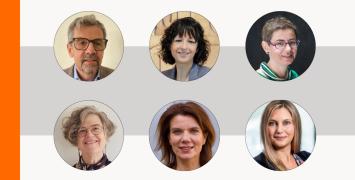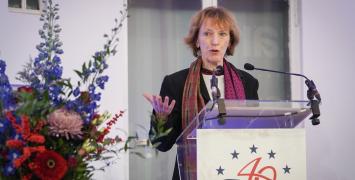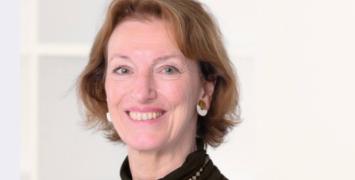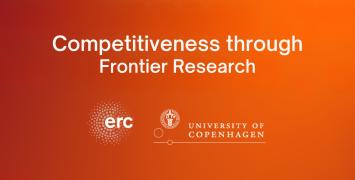ERC President’s speech to European Parliament
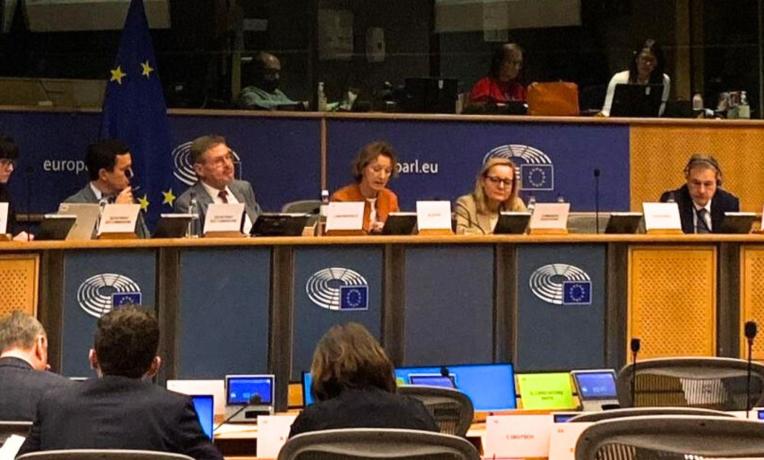
-- Check against delivery --
Dear Chairman Mr van Overtveldt,
Dear Members of the European Parliament,
Ladies and Gentlemen,
Thank you for inviting me here today. It is my first time to address you here in the Budgets Committee. I thank the Chair for the opportunity, also on behalf of the ERC Scientific Council and the entire ERC.
The European Research Council was created in 2007 with the start of the seventh EU research Framework Programme with the mission to fund excellent research in all areas including the social sciences and humanities. To date, over 15,000 researchers in Europe have received ERC grants. This has enabled many scientific breakthroughs and advances, which have had wide impact. This is seen as a European success world-wide, and my scientific colleagues abroad envy Europe for having an ERC. 14 ERC-funded researchers were subsequently awarded the Nobel Prize.
As you know, following the proposals of the Commission in the field of EU research and innovation in July, we are only at the start of what will be two years of difficult negotiations. Bringing a successful conclusion to these negotiations will be your primary task during this period.
Overall, we welcome the Commission’s proposals, especially in terms of funding. The Commission has put forward a bold and ambitious new budget at a time when it would have been easy to be cautious.
In terms of research and innovation, the proposal is that the next edition of Horizon Europe will have a €175 billion budget, up from €95 billion now. And within that, the ERC will have a €31 billion budget, up from €16 billion now. So this is good news as this proposed near-doubling of the ERC budget meets a long-standing request of the ERC Scientific Council.
For the ERC, this level of increase would allow us to fund all of the excellent proposals that we currently receive; to increase the amount of the grants to account for inflation; to continue the ERC Plus grants that were recently announced as part of the Choose Europe initiative of President von der Leyen and Commissioner Zaharieva; and possibly to finance new schemes such as the ERC for Institutions (ERC-I) proposed in the Draghi report.
As you know very well, the point of the EU budget is to align with our collective goals and aspirations, and to provide 'European public goods' that would not be possible for any single member state to provide. This “EU added value” can take various forms, for example, in terms of increased scale, coordination of national efforts, easier cross-border collaboration between actors or pan-European competition.
The ERC is itself an example of a European public good. By operating a pan-European competition on the sole criterion of scientific excellence, the ERC is able to draw on a wider pool of talent and ideas than would be possible for any national scheme. The best researchers and the best ideas compete against each other. And this is why the ex-post evaluation of the seventh EU Framework Programme, FP7, was already able to conclude about the ERC that, 'The European Research Area has long been in need of this institution.' [1]
One effect of the way the ERC operates is that the research we fund tends to be more impactful than the research funded at national level. ERC grantees have made breakthroughs in areas from quantum information science to the modelling of the Earth’s climate. From the development of revolutionary DNA sequencing techniques to third generation dye-sensitised solar cells. From discoveries concerning the diagnosis and clinical management of rheumatoid arthritis to ecological economics, political ecology and environmental justice. From how cells sense and adapt to oxygen availability to analysing market power and regulation [2]. These are the kinds of breakthroughs that cannot be planned in advance and depend on the ingenuity and skill of our top scientists.
But beyond the results of the projects that we support, ERC grantees and their projects set a clear and inspirational target for frontier research in Europe. ERC grant winners set a benchmark for national systems and individual research institutions. They also raise the profile of European science globally and make Europe more attractive for the best researchers at global level.
I believe that these structural effects are underrated but may prove to be very significant in the long run. So personally, I think we should stress more such examples of EU added value, rather than simply calculating net contributions to the EU budget. This is why it is so important for Europe to invest in fundamental science. By investing in frontier research, Europe provides the foundation of tomorrow.
In a recent speech, Mario Draghi expressed his fear that if we are not willing to pool our resources much more than we do today then it will be impossible to compete with continental size powers such as China and the US[3].
Similarly, Nobel Prize-winning economist Jean Tirole, also an ERC grantee, argued recently that Europe is undermining its own innovation potential by spreading research funding too thinly, rather than concentrating on the most promising projects and researchers. This creates a fragmented system that favours political balance over scientific excellence, leaving Europe at risk of falling behind. The 'big exception” according to Tirole was the ERC because it allocates funding based purely on scientific excellence' [4].
Moving on from the proposed budget, the European Commission has also proposed that the mission and the governance of the ERC are largely to remain the same.
This is positive in one way because there were many rumours and leaks before the proposals came out. Some of these indicated that Horizon Europe and therefore the ERC would be subsumed under a single European Competitiveness Fund focussed on technological deployment. In the end, a European Competitiveness Fund has been proposed but alongside a Horizon Europe which 'will operate as a self-standing programme'.
On the other hand, we still have concerns. Horizon Europe will be 'self-standing' but 'closely connected to the European Competitiveness Fund through integrated work programmes for collaborative research and a common rulebook'.
I think everyone in the scientific community and beyond is anxiously waiting to see what this means in practice.
The ability of the ERC to set its own strategy and devise its own mechanisms is the foundation of its success: the ERC establishes strategy based on the needs of frontier research and has put in place panels composed of internationally recruited expert scientists who select proposals on scientific merit alone. Scientific freedom and institutional autonomy are required for the ERC’s success to continue.
One of the objectives of the ERC has always been to attract to and retain scientific talent in Europe. With the additional money the ERC receives through the policy initiative Choose Europe, the ERC Scientific Council will fund a new scheme of highly attractive and internationally competitive grants with funding for up to €7 million for up to seven years.
Finally, I want to give you just one example of how this type of research enables innovation and contributes towards Europe’s technological sovereignty and competitiveness.
Take security and the threat of external interference with our communication systems. Not far from here is the port of Rotterdam, one of the largest in the world and on which the economies on this continent and our everyday lives depend. You would not want a hostile entity to be able to jeopardise the functioning and logistics of the port, so its communications systems must be highly secure - a challenge that is of course not unique to the port of Rotterdam. But Rotterdam was in fact the first in the world to install an unhackable communication system which is based on quantum cryptography. How so? And what does that have to do with what I'm talking about today? It is because at the University of Delft right next door, there is a group working on quantum communication. And the system on which this unhackable communication network is based derives from the work of the leader of that group, Stephanie Wehner. She is a computer scientist whose work has been funded by the ERC at a time when this application for it was not anticipated. In fact, she simply enjoys understanding, playing with, and developing cryptography, and it is for her proposal to understand and develop the underlying logic and physics that she was awarded ERC grants.
In conclusion, I know that Europe has the talent and the ideas. I see that in the wonderful proposals that are submitted to the ERC in their thousands every year. What we need is the determination to invest in them, to protect the independence of frontier research, and to focus relentlessly on excellence.
Let us commit together to put frontier research at the heart of our vision for the future.

